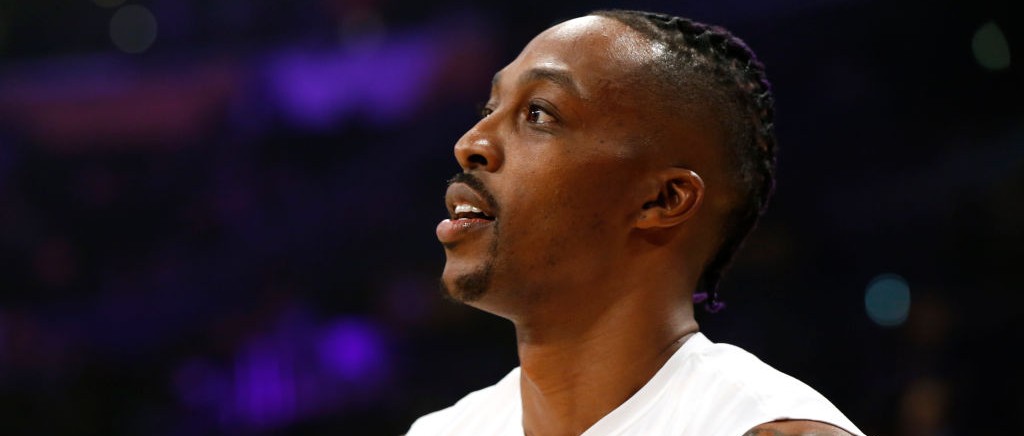As the NBA moves ever closer to restarting the season in Orlando, with 22 teams making an 8-game run to the playoffs, there is a group of players that have spoken up to voice concerns about the league’s plan.
Kyrie Irving, Avery Bradley, John Wall, and Dwight Howard are among those that have pointed out potential issues with the Disney bubble restart, with some like Wall questioning how safe it will be, while Irving and Bradley worry the league coming back will distract from the Black Lives Matter movement and player efforts in activism at a critical inflection point in American history. The league has promised to use the restart to create “meaningful and generational change,” but until a firm plan is announced for how they’ll do that, players will remain skeptical.
Those that have voiced their concerns have received some pushback from other players and fans, and on Wednesday Dwight Howard issued a statement explaining why he felt it was so important to speak out.
Lakers' Dwight Howard in statement to @TheAthleticNBA @Stadium: "Our main objective is to raise awareness and gain transparency…Many of our fellow players are afraid to voice their concerns and are continuing to follow along with what they believe they have to." pic.twitter.com/dfTlSPBwpV
— Shams Charania (@ShamsCharania) June 17, 2020
The most interesting part of Howard’s statement is the apparent criticism of some of the NBPA leadership, as he notes, “Leaders sometimes become self serving and forget the people that they are supposed to represent. Some leaders even use fear and intimidation to make sure they serve their own agendas, while forgetting the feelings of their people.”
Given that reports over the weekend indicated that Chris Paul was on the call organized by Irving and made sure to point out to players the financial ramifications of not playing, it’s hard not to see that part as at least somewhat directed at the NBPA president. All indications are that Paul was just trying to make sure players fully understood everything that would happen should they sit out — which the league has made clear they’ll lose 1/92.6 of their salary per game missed — which is his job as president, but Howard seems to believe that some of the leaders in the union are pushing the financial losses that are possible to intimidate players into heading to Orlando when they aren’t comfortable.
The truth in all of this is that it’s a wildly complicated situation in which players and the league both have significant financial stake in playing, but every player that has pointed out concerns, whether with safety or distracting from activism, has a more than valid point. The deadline to make their decision on playing is rapidly approaching, as teams must be notified by June 24, and it remains to be seen whether the league will make their plan clear enough to satisfy player concerns and how many players will be willing to sit out.







